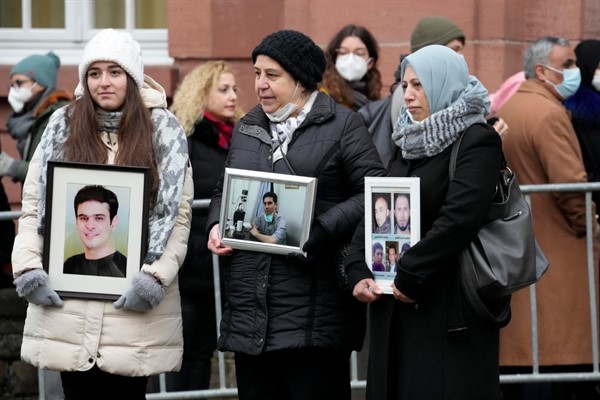The conviction by a German court last week of Anwar Raslan, a Syrian intelligence officer who oversaw the torture and murder of detainees in that country during the early years of its civil war, represents a high-water mark in the ongoing quest for accountability against the regime of Syrian President Bashar al-Assad. But the difficulty of securing a war crimes conviction for even a mid-level bureaucrat like Raslan also underscores the difficulty of pursuing accountability for Assad himself. If it’s a long shot to prosecute a low-level perpetrator like Raslan, then how likely is it that Assad will ever be brought to justice for his crimes?
The landmark case was heard not by an international tribunal or a Syrian court, but by a court in the German city of Koblenz for a variety of reasons, all of which help explain the desultory state of accountability for war crimes, whether in Syria or more generally.
Assad held onto power in large part through a scorched-earth campaign against his own citizens, a point underscored by the motto of his partisans: “Assad, or we burn the country.” They meant it, as did Assad. Today, he rules over a war-torn country controlled through the use of brutal force and a nationwide gulag of interrogation, torture and detention centers that remains largely intact.

